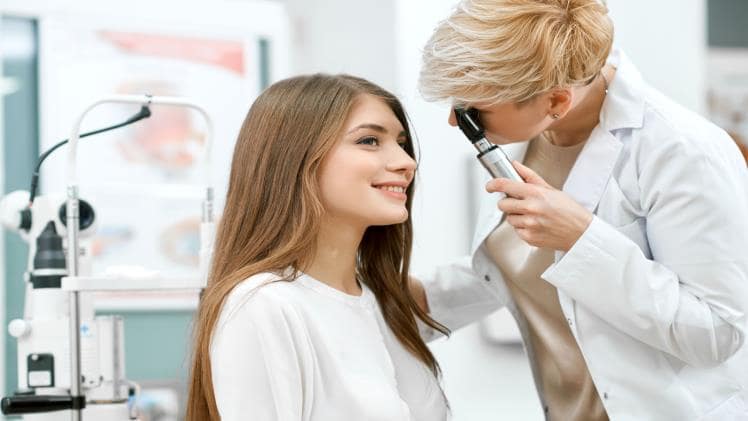Do you remember your last eye examination? Even though eye exams should be routine, it is rather typical to overlook scheduling them regularly. Many individuals tend the need annual eye checkups.
However, annual eye checkups must be part of your good routine. A complete eye examination is a regular yearly procedure for many people to help avoid advancing vision problems. Medicare Optometrist can also help you see clearer with proper prescriptions after an eye test.
Preparing for an eye examination is a pretty simple procedure. Let’s go through certain activities you should avoid just before seeing your optometrist. Once you’ve scheduled your next visit, these suggestions will help you get the most from your eye checkup.
Don’t forget to bring your contact lens or eyeglasses.
If you wear contacts or glasses, bring them with you once you visit your optometrist. It will assist your Medicare Optometrist in determining if your recent prescription permits you to see clearly.
It also allows them to ensure that your eyeglasses and lenses function perfectly. It is especially beneficial for contact lens wearers, as ill-fitting lenses can strain your eyes and further pose challenges.
Wearing a good pair of sunglasses will help you control any eyestrain following dilation. So you can be comfortable until the drops wear off.
Don’t consume caffeinated drinks.
Regular eye exams can identify health problems that aren’t immediately connected to your visual system, such as excessive blood pressure. As a result, avoiding products that may cause your blood pressure to increase or fall is crucial.
Consider eliminating coffee and other caffeinated products on the day of your consultation to help maintain your blood pressure at normal ranges.
Another drug that affects blood pressure is alcohol. It can also cause your eyes to feel easily irritated, which might impact exam outcomes. With these circumstances, a Medicare Optometrist advises avoiding excessive drinking the night before your checkup and avoiding alcohol entirely on the day of your consultation.
Avoid straining your eyes.
A vision test, which uses an eye chart to measure your vision at a distance, is one of the initial sections of an eye test. This measure indicates optical abnormalities and assists your doctor in determining if you require prescription glasses. Arriving at the clinic with well-rested eyes can help optimize the accuracy of the test.
Reduce screen usage hours before your consultation to keep your eyes well-rested. It is significant since excessive screen time can induce digital eye strain, which can cause eye tiredness and compromise your eye testing results.
An early appointment is one of the most uncomplicated initiatives to ensure your eyes are well-rested. It is beneficial if you work or study on a computer or tablet.
If you spend a significant amount of time on your computer or phone before your appointment, try resting your eyes an hour or two before coming to the clinic. Even shutting your eyes for a few minutes in the waiting area of your Medicare Optometrist before your consultation is beneficial.
Don’t be nervous or intimidated.
While it is natural to be concerned before any medical examination or operation, modern testing equipment has made complete eye tests reasonably comfortable.
Digital cameras, which are practically non-invasive, are used for retinal scanning and corneal imaging. The most bothersome aspect of an eye test is generally some light sensitivity following pupil dilation.
While light sensitivity is unpleasant, it will fade shortly after you consult with your Medicare Optometrist, and your vision will begin to recover within several hours.
It is unusual for people to have significant discomfort during an eye test. The eye care professionals in the clinic will assist you from when you walk into the clinic until you leave.
You should never forget your insurance information at home.
Bring your most recent insurance information to your consultation since it is an essential aspect you will need for your eye exam. As a result, bring it with you to the examination.
Not only would leaving your proof of insurance at home prolong the test procedure, but it will also need additional requirements that you might have prevented if you had brought it.
As a result, before visiting a Medicare Optometrist, always bring your insurance information. By planning ahead of time, you may save time and effort.
Don’t forget to stay hydrated.
Hydration is just as vital for your eyes as it is for the entire body. When you’re hydrated, your eyes are much more likely to generate adequate tears to take your eyes wet, allowing you to see clearer.
Dehydration is likely to aggravate the symptoms of persons who suffer from dry eyes. A glass of water before your visit will help you remain happy and content and may even improve your assessment performance.
You now understand what you should avoid performing before an eye examination. As a result, remember these points before your routine eye checkup the next time you arrange an appointment with a Medicare Optometrist. Are you ready to have your eyes examined? Your Medicare Optometrist is now prepared to serve you.

